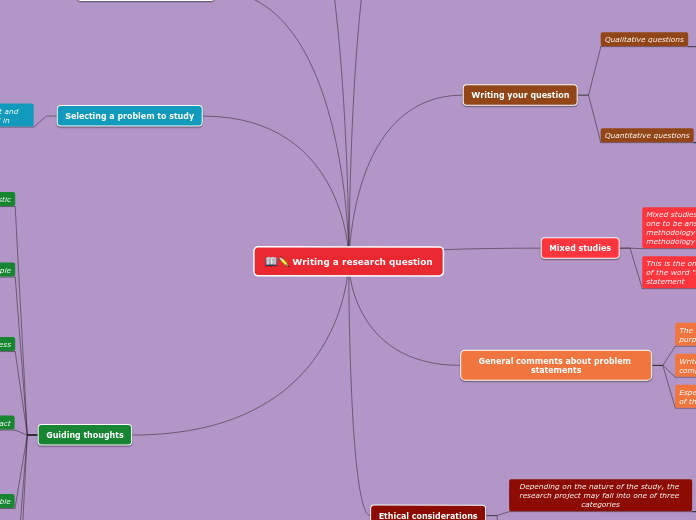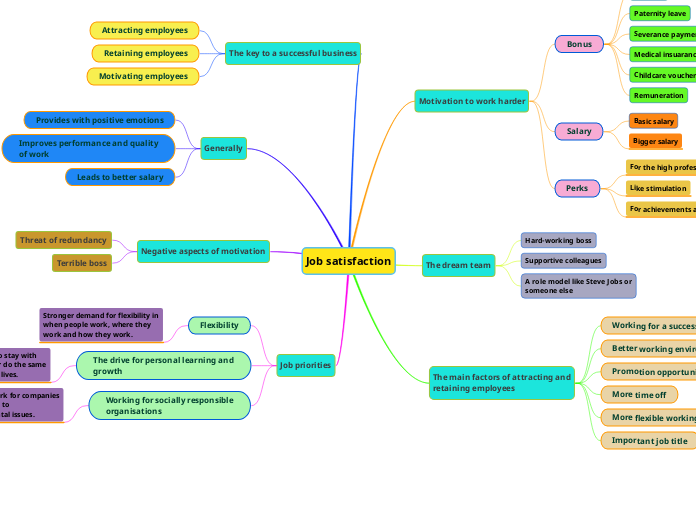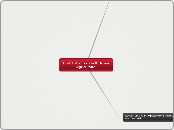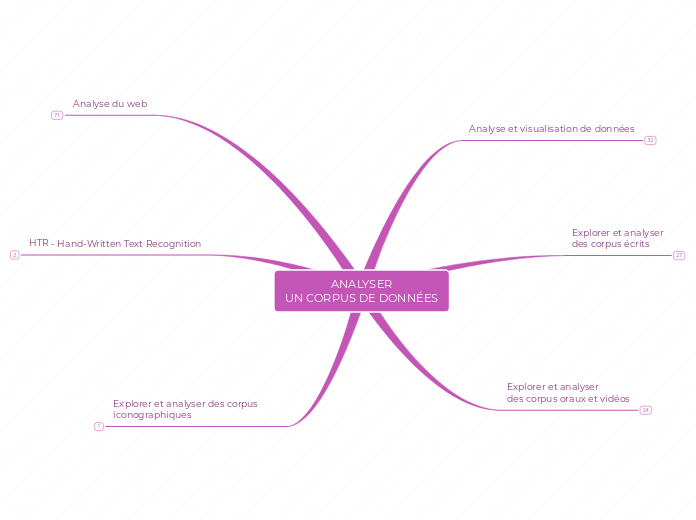Writing a research question
Ethical considerations
Check with your institution to get the specific guidelines to follow to get your research proposal approved
Depending on the nature of the study, the research project may fall into one of three categories
Exempt from review
Do not require written consent forms
Expedited review
Full review
Subjects must also be willing participants
Privacy of individuals
General comments about problem statements
Especially for new researchers, avoid the use of the word “and” in a problem statement
Write for clarity: avoid technical jargon or complicated grammatical construction
The statement typically starts with “The purpose of this study…”
Mixed studies
This is the only time we recommend the use of the word “and” in writing a problem statement
Mixed studies are looking at two questions, one to be answered with a quantitative methodology and one with a qualitative methodology
Writing your question
Quantitative questions
For studies in which groups will be compared statistically, the general form of a quantitative question is: what are the comparisons of characteristics of groups based on an intervention
The general form of quantitative questions is: what are the descriptions of the characteristics of a group
Quantitative research is based on the collection and analysis of numerical data
Qualitative questions
The general form of a qualitative problem statement is: what are the patterns and perspectives of a group about something in a particular setting
Useful for describing or answering questions about particular localized occurrences or contexts and the perspectives of a particular group toward events, beliefs or practices
Guiding thoughts
Be interested in your topic
Given all the other demands on your time, feel what you devote to your research project
Work on a topic you don’t really have a vested interest in will not keep you motivated
Plan to study something you are excited about
Ask yourself whether your study has any importance
Analyze if your study has already been replicated (see if it works in your context)
Theoretical importance
Check if your study will add something important
Practical importance
Revise what you would gain by doing your study
Be flexible
Eventually, your problem statement will need to become permanently fixed but not necessarily at the beginning
Review your question to see if it has a slightly different focus
Adjust or refine your question as you progress if you wish
Avoid being too abstract
Have some basic ideas before doing much exploring
Do background research will help you in focusing your question
Think about what really concerns you in a certain area
Consider ease of access
Avoid looking for data which are not going to be available later
Be aware of the implication of your data collection
Consider when you will be able to have access to your sample
Choose a convenient sample
Bear in mind ethical considerations
Your sample may respond in a way they feel you want to see
Choose your own environment as an optimal place to look
Being realistic
Come up with a manageable question simple to answer
Keep your study simple to start
Realize you will have time constraints
Selecting a problem to study
It is important to look for a coherent and plausible topic you are interested in
Identifying a problem area
Prompts that may be helpful
Look at “hot topics” in current education to see if something piques your interest
Read the literature and see what the implications sections offer
Look at the Review of Educational Research for ideas
Have you seen a problem or concerned raised around you?
Check validity of research findings if you want to replicate
Identify a problem you want to try to develop
Think about a (past, future, present) phenomenon you wish to describe
What makes a researchable question?
The involvement of ethics with the question is an important consideration in developing a researchable topic
Questions based on opinion, personal philosophies or belief are generally not researchable
In order to be researchable, you have to be able to answer your question, supported by the data you collected
What kind of problem is it?
Quantitative
Determine the effect of something on something else: a new teaching methodology on student achievement, etc.
Find variables you can measure: student achievement, gender differences, relationships
Qualitative
Examine new constructs
Examine organizational structures
Why something does and does not work
Identify variables: what would affect the phenomenon
Get the root of misconceptions: understand a complex process
Theory developing: generate a hypothesis to explain









